Phonics Skills Normal Consonants Worksheets for Ages 4-6
12 filtered results
-
From - To
Looking for engaging Phonics Skills Normal Consonants Worksheets for children aged 4-6? Our worksheets are designed to make learning fun and interactive! These activities help young learners master consonant sounds, improve their phonemic awareness, and lay a strong foundation for reading. Each worksheet features colorful illustrations and simple exercises that encourage children to recognize, write, and use consonants in various contexts. Ideal for classroom or home learning, our resources cater to different learning styles, making phonics an enjoyable experience. Help your child develop essential literacy skills with our thoughtfully crafted worksheets and watch their confidence soar as they become reading ready!
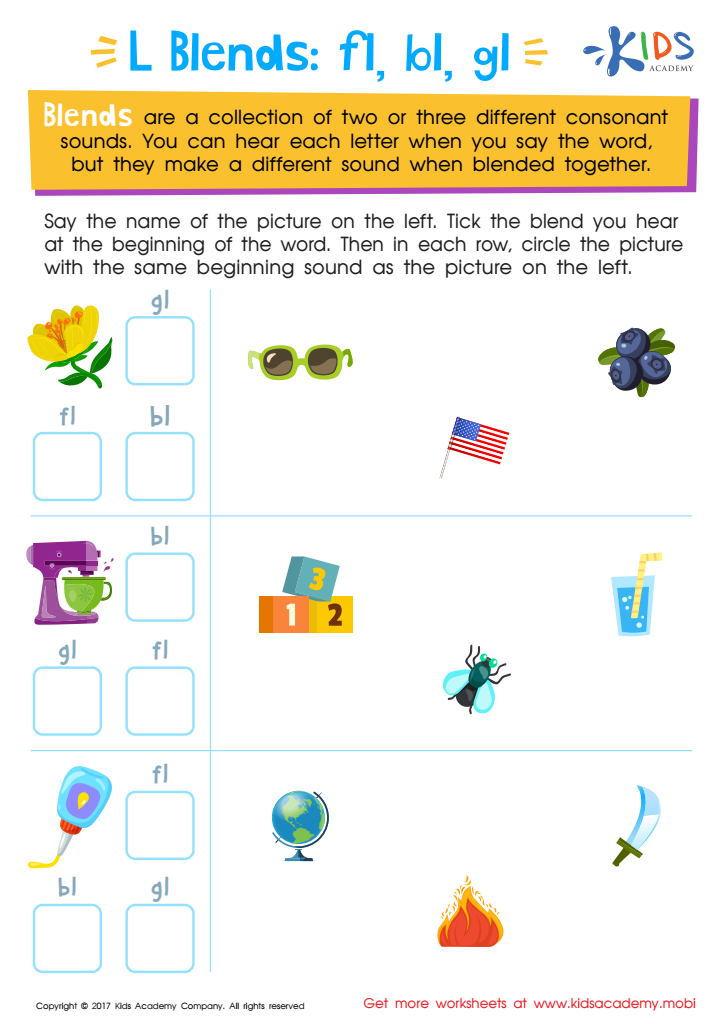

Blending Consonants: "Fl", "Bl" and "Gl" Printable
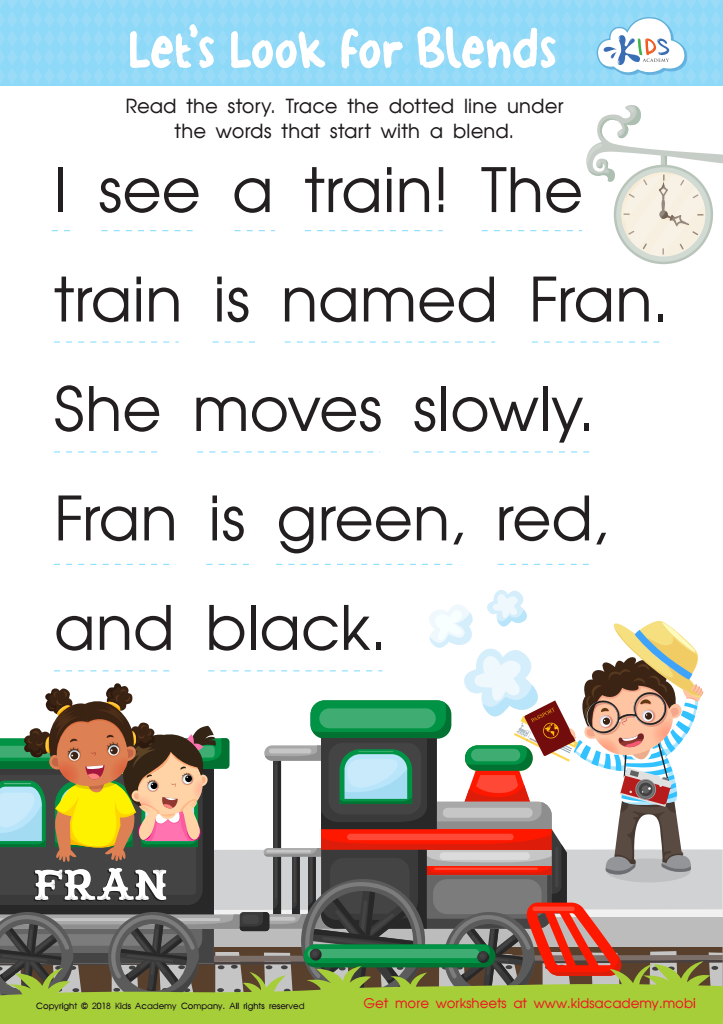

Let's Look for Blends Worksheet
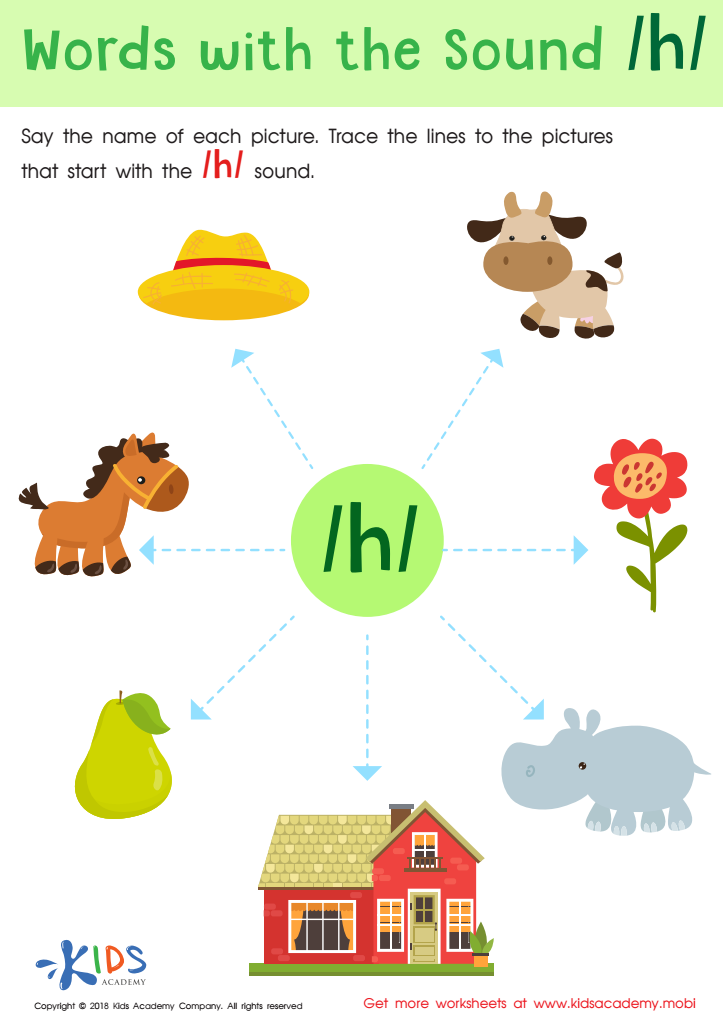

Words with sound h Reading Worksheet
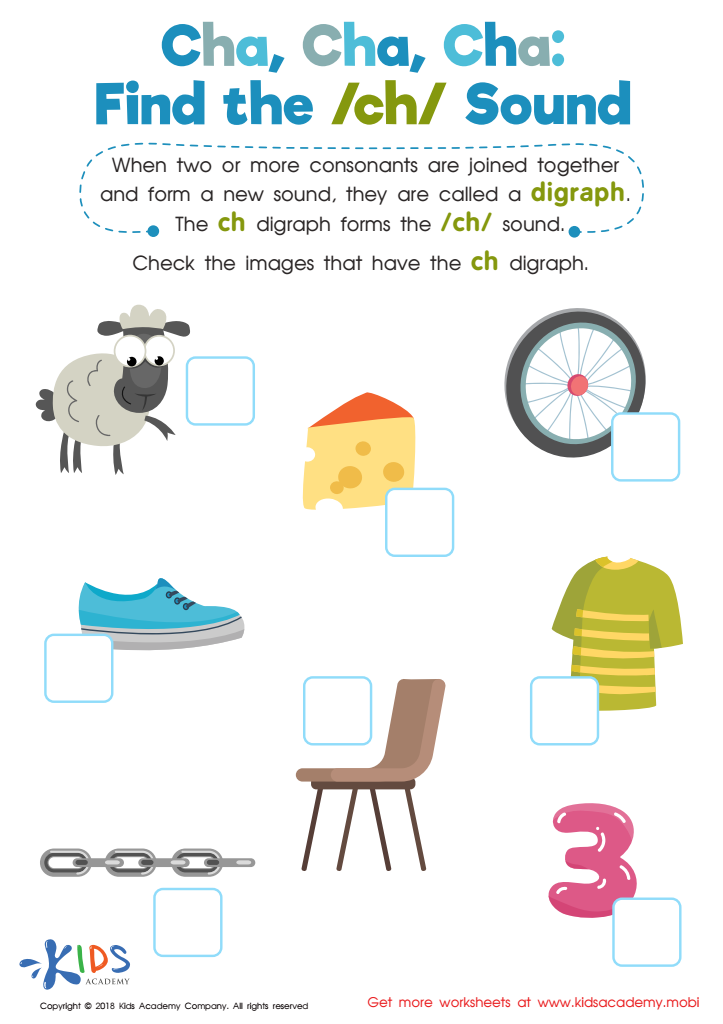

Cha, Cha, Cha: Find the /Ch/ Sound Worksheet
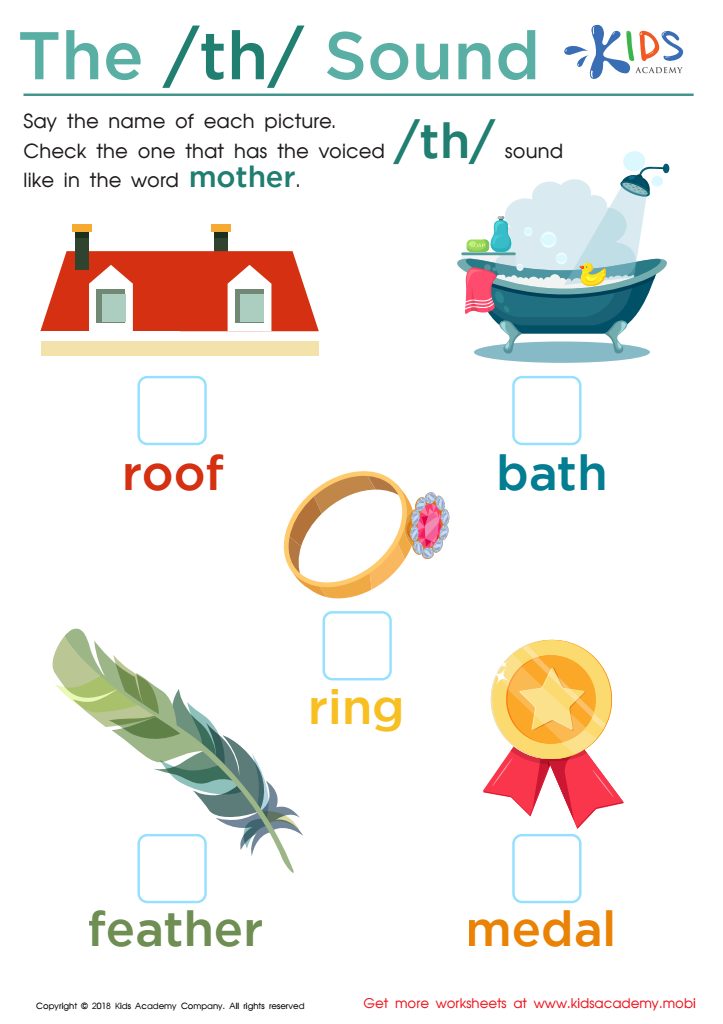

The /th/ Sound Worksheet
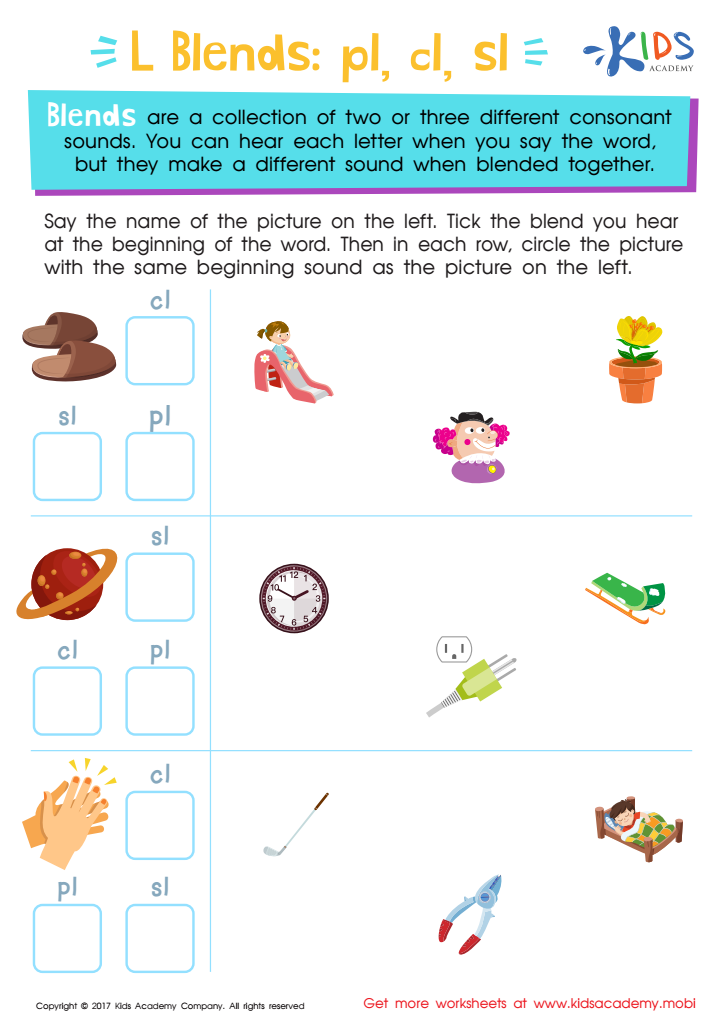

L Blends: "Pl", "Cl" and "Sl" Printable
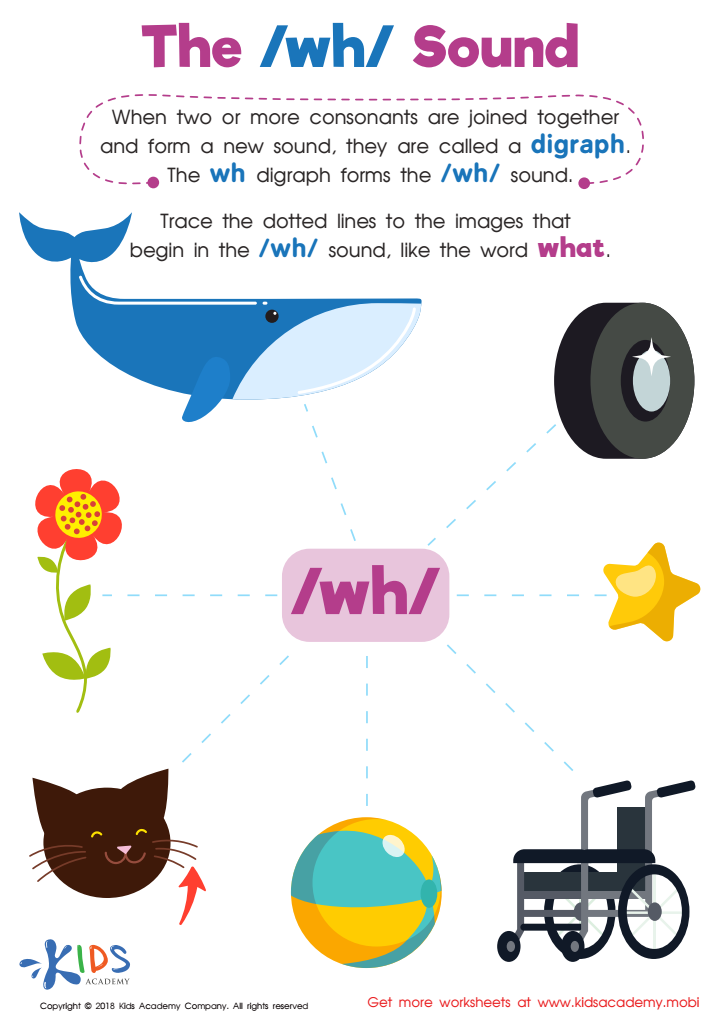

The /wh/ Sound Worksheet
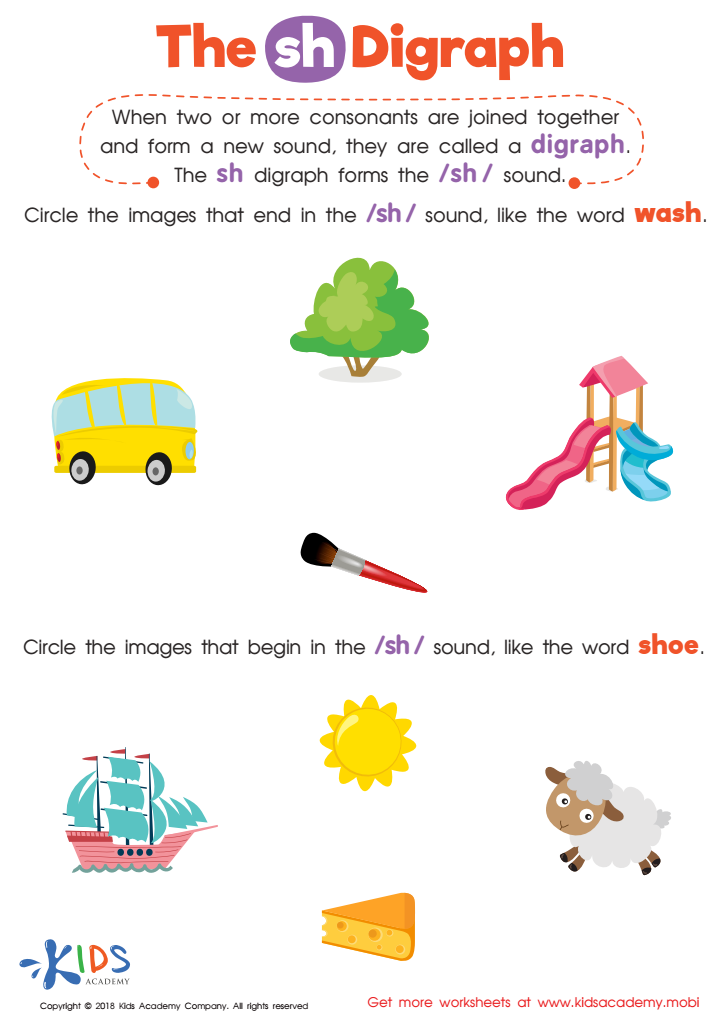

The SH Digraph Worksheet
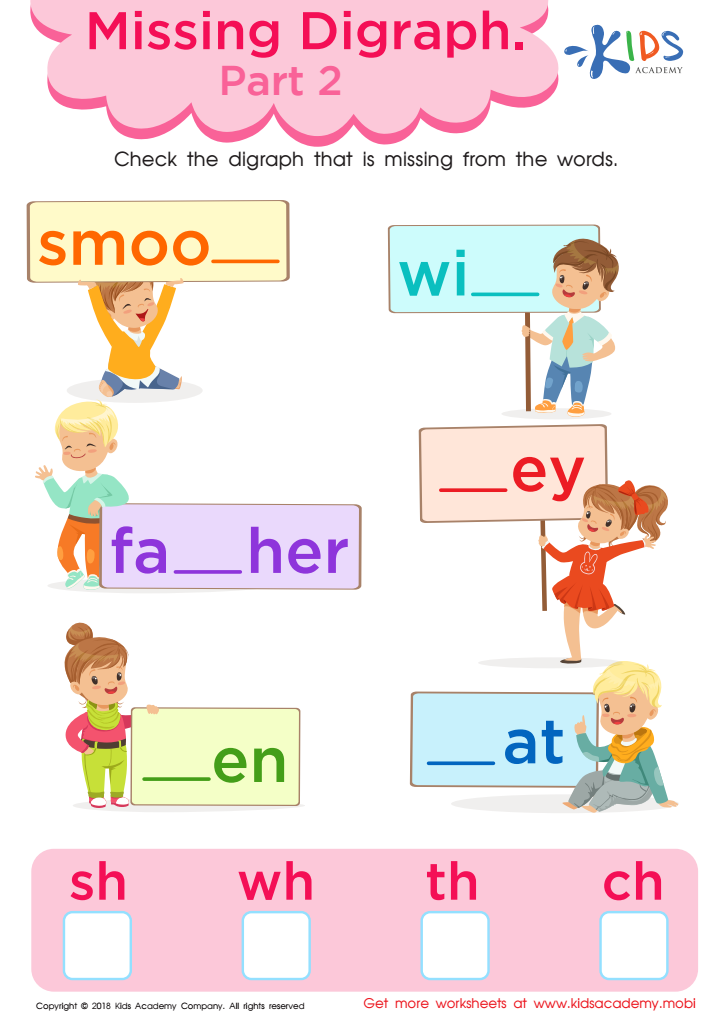

Missing Digraph: Part 2 Worksheet
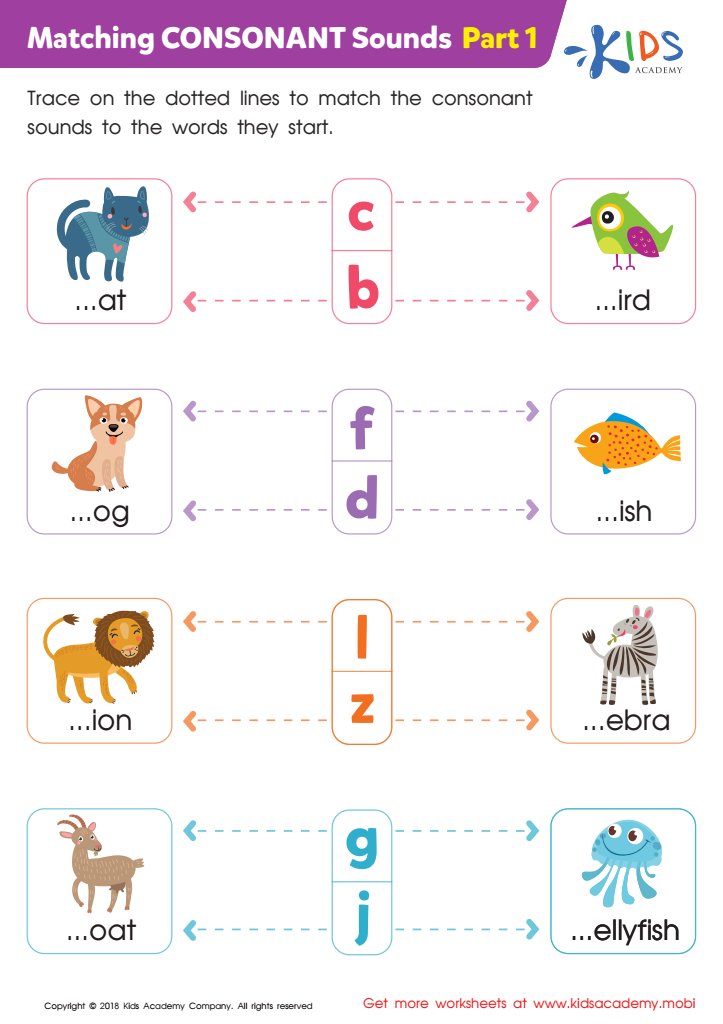

Matching Consonant Sounds: Part 1 Worksheet
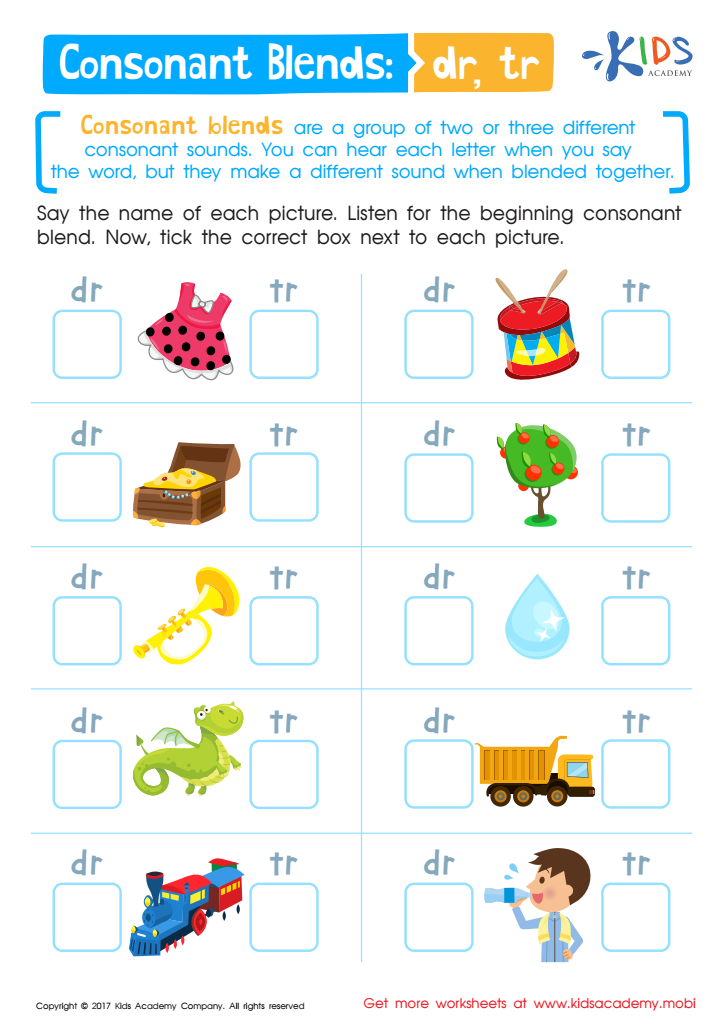

Consonant Blends: "Dr" and "Tr" Printable
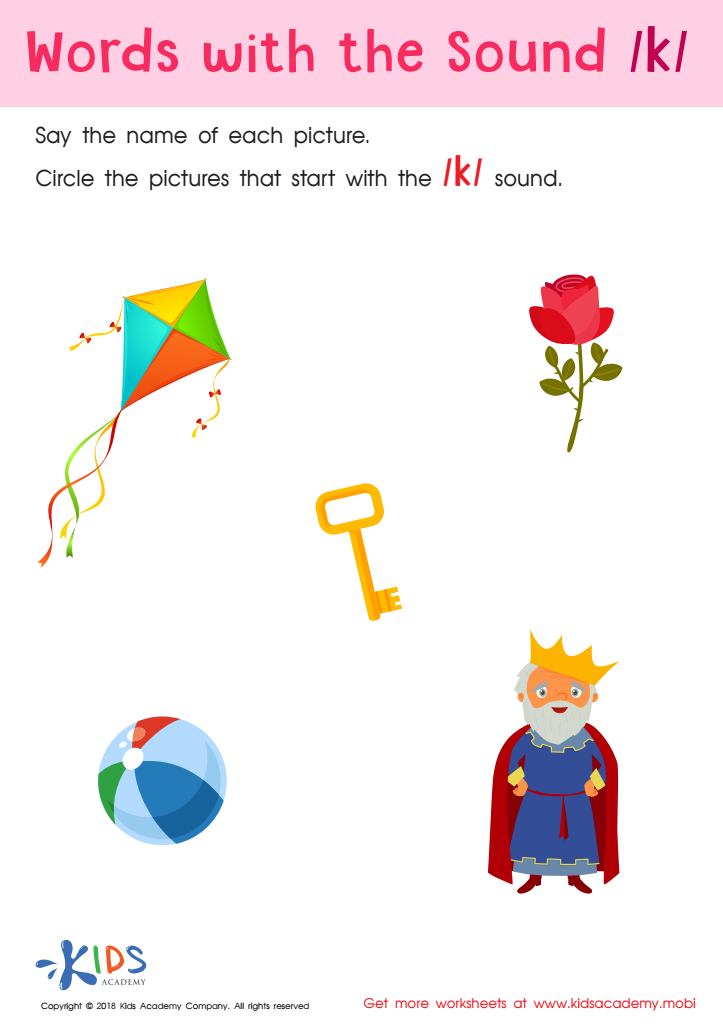

Words with sound k Reading Worksheet
Phonics skills, particularly focusing on normal consonants, are crucial for children aged 4-6 as they lay the foundation for reading and writing. At this developmental stage, children are beginning to unlock the complexities of language, and understanding consonants is essential in building their phonemic awareness—an understanding of how sounds function in words.
Firstly, recognizing consonant sounds enables children to decode words, a fundamental skill for reading fluency. When children can identify and articulate consonants, they can sound out simple words, supporting their confidence in reading. This early skill set fosters a love for literacy, leading to engagement with books and stories.
Additionally, teaching normal consonants helps children develop spelling and writing abilities. As they learn to connect sounds to letters, they begin to encode words, transitioning smoothly from blocking to free writing. This not only aids in literacy development but also boosts cognitive abilities associated with critical thinking and problem-solving.
Moreover, parents and teachers play a pivotal role in reinforcing these skills through play, songs, and phonics games, ensuring learning is both effective and enjoyable. By prioritizing phonics skills, caregivers can cultivate an environment where children thrive academically and develop strong communication skills essential for lifelong learning.
 Assign to My Students
Assign to My Students








